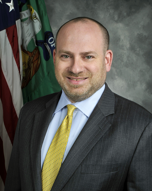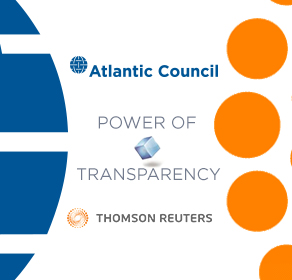On March 16, 2016 the Atlantic Council and Thomson Reuters launched of the “Power of Transparency” speaker series, featuring Assistant Secretary for Terrorist Financing Daniel Glaser, to discuss the role of transparency in fighting corruption and preventing illicit activity in financial systems.
Transparency is a fundamental element to fulfilling the Treasury’s mission of maintaining a strong economy and creating economic and job opportunities. Further, transparency strengthens national security and protects the integrity of the financial system. Controlling corruption is possible only when government, citizens, and the private sector cooperate to ensure transparency.
Read the full remarks by Assistant Secretary Daniel Glaser on “The Role of Transparency in Fighting Corruption in Financial Systems” here.
Key takeaways:
• Corruption harms the global community for a wide range of reasons: it stifles economic development, impairs democratic institutions, erodes public trust, and impairs international cooperation. Moreover, corruption creates space for criminals to flourish and abuse the financial system – threatening local, regional, global, and US national security.
• Addressing financial transparency is not just a US responsibility. It is a global responsibility. The international financial system is integrated, leaving us only as strong as our weakest link. A timely example is the so-called Panama Papers, which underscore the importance of a broader set of issues that the Treasury is working to address alongside their international partners.
• The key to making money laundering more difficult, is by focusing on strengthening financial transparency – particularly through effective implementation of measures regarding anti-money laundering and countering the financing of terrorism, known as AML/CFT.
• Financial transparency means having timely, meaningful, and reliable information about the parties to transactions and assets through preventive measures on the front end, as well as effective monitoring and reporting on the back end.
• Financial transparency is essential to the success of corruption investigations and the investigations of many crimes, because it better enables the Treasury to trace, identify, and ultimately return assets stolen by corrupt leaders and regimes.
• Financial transparency itself has a strong deterrent effect on criminals, keeping their money out of the financial system to begin with.
• One key measure underpinning financial transparency is effective customer due diligence. Financial institutions are the Treasury’s front line of defense, and they need to be empowered to identify their customers, verify the information they have, and monitor for suspicious activity.
What can be done to improve domestic implementation?
• To further improve the system, the Treasury is developing a rule to clarify and strengthen financial institutions’ customer due diligence (CDD) obligations. (A final draft of the rule was sent to the Office of Management and Budget in early March 2016)
• Financial transparency goes beyond the role of financial institutions alone. That’s why the Treasury also focuses on improving the transparency of companies themselves.
What can be done to improve global implementation?
• Countries must do more to effectively implement their laws and work i.e. through the G-20 and the G-7 to advance financial transparency.
• Countries around the world need establish and implement AMF/CFT regimes that create environments that are hostile to all forms of financial crime, including corruption.
About the speaker:

The Hon. Daniel Glaser
Assistant Secretary for Terrorist Financing
US Department of the Treasury
H.E. Daniel L. Glaser was confirmed by the US Senate on May 27, 2011 to serve as Assistant Secretary for Terrorist Financing in the Office of Terrorism and Financial Intelligence. As Assistant Secretary, Glaser is responsible for helping to formulate and coordinate counterterrorist financing and anti-money laundering policies and strategies for the Department.
Glaser served previously as Treasury’s Deputy Assistant Secretary for Terrorist Financing and Financial Crimes (2004- 11). He was responsible for developing and coordinating policies to protect the US and international financial systems from abuse related to money laundering, terrorist financing, and the financing of the proliferation of weapons of mass destruction. Glaser also served as the Head of the US Delegation to the Financial Action Task Force (FATF), the premier international anti-money laundering and counterterrorism financing body.
Prior to that position, Glaser served as the first Director of the Treasury Department’s Executive Office of Terrorist Financing and Financial Crimes and as Senior Counsel for Financial Crimes in the Office of the General Counsel.
